Earth
-
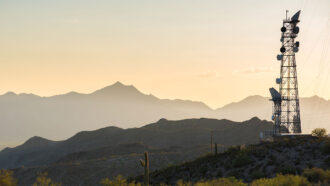 Tech
Tech5G promises new energy savings for digital tech
A new way to transmit wireless communications promises time and energy savings by using networks of smaller cells.
-
 Tech
TechGreening your digital life
The less electricity you use while playing video games or using your devices, the less impact you’ll have on climate change.
-
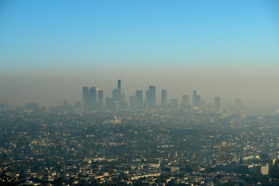 Environment
EnvironmentCOVID-19 cut pollution in 2020, warming the atmosphere
Pandemic-related lockdowns briefly warmed the planet. The reason: The cleaner air carried fewer planet-cooling aerosols.
By Sid Perkins -
 Tech
TechTraining AI to be really smart poses risks to climate
As artificial intelligence models grow larger and consume more energy, experts have begun to worry about their impact on Earth’s climate.
-
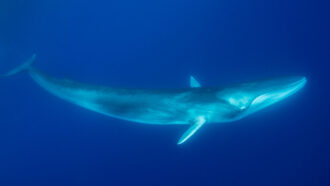 Earth
EarthFin whales could help scientists map what lies below the seafloor
Fin-whale calls are loud enough to penetrate into Earth’s crust, offering scientists a new way to study the properties of the ocean floor.
-
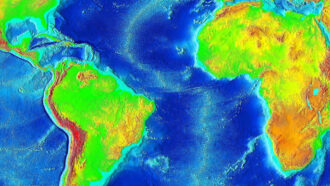 Earth
EarthRock rising from below the Atlantic may drive continents apart
Molten rock rising from the deep mantle at the Mid-Atlantic Ridge may drive plate tectonics there more than had been expected.
-
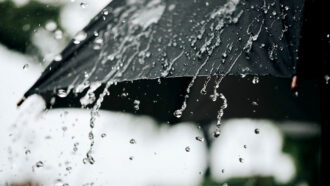 Climate
ClimateScientists Say: Weather
The state of the atmosphere in a specific place and time is weather. Over a long time, the weather conditions in an area will reveal its climate.
-
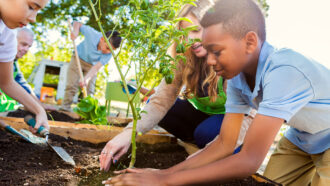 Environment
EnvironmentWhat you can do to improve soils
Soils are the life-sustaining structures under our feet. Here are some tips for keeping soils healthy. First rule of thumb: Give more than you take.
-
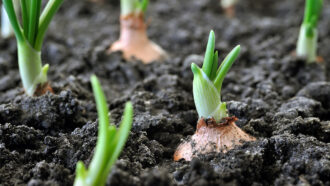 Agriculture
AgricultureHealthy soils are life-giving black gold
Scientists explain why everyone needs to value the soils beneath our feet — and why we should not view them as dirt.
-
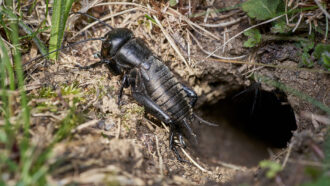 Agriculture
AgricultureSoil (and its inhabitants) by the numbers
Teeming with life, soils have more going on than most of us realize.
-
 Chemistry
ChemistryExtreme pressure? Diamonds can take it
Diamond retains its structure even at extreme pressures, which could reveal how carbon behaves in the cores of some exoplanets.
-
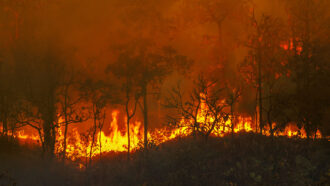 Climate
ClimateCan wildfires cool the climate?
Severe wildfires are becoming more common. Science is showing that the tiny particles they release into the air can alter Earth’s temperature — sometimes cooling it.